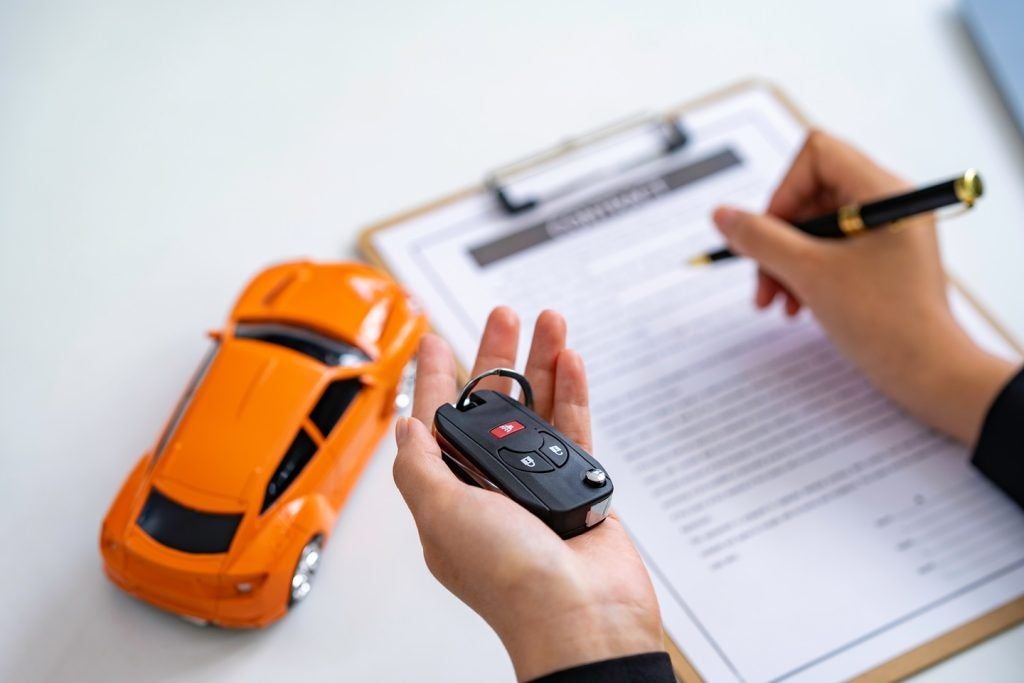
Sales in the UK new car market declined 35.5% in February, according to the latest statistics from the Society of Motor Manufacturers and Traders (SMMT).
With showrooms closed nationwide since 5 January – and in many parts of the country, since December – both private and fleet sector demand fell, by 37.3% and 33.5% respectively. All vehicle segments saw declines apart from luxury saloons, which recorded a 3.8% increase against a statistically very small proportion of the market.
Plug-in vehicles continued to enjoy growth, with BEVs and PHEVs taking a combined 13% market share for the month, up from just 5.7% in February 2020. BEV uptake increased by 40.2% to 3,516, and PHEVs by 52.1% to 3,131 as the industry continues to promote a broad range of lower-emission technologies for consumers.
However, increasing uptake of these new technologies to the levels required by 2030 remains a mammoth task, said the SMMT, with yesterday’s Budget proving a missed opportunity given the lack of measures to support the market overall and notably the transition away from pure petrol and diesel cars and vans.
While online orders and Click and Collect can provide a lifeline, showroom closures mean dealerships will find it significantly more challenging to fill order banks following £23bn worth of fewer registrations since March 2020. As a result, SMMT has revised its market outlook to 1.83m new car registrations in 2021, down from the 1.89m predicted in January. Most of these losses are expected to occur in March.
Mike Hawes, SMMT chief executive, said: “February is traditionally a small month for car registrations and with showrooms closed for the duration, the decline is deeply disappointing but expected. More concerning, however, is that these closures have stifled dealers’ preparations for March with the expectation that this will now be a third successive dismal ‘new plate month’.
How well do you really know your competitors?
Access the most comprehensive Company Profiles on the market, powered by GlobalData. Save hours of research. Gain competitive edge.

Thank you!
Your download email will arrive shortly
Not ready to buy yet? Download a free sample
We are confident about the unique quality of our Company Profiles. However, we want you to make the most beneficial decision for your business, so we offer a free sample that you can download by submitting the below form
By GlobalData“Although we have a pathway out of restrictions with rapid vaccine rollout, and proven experience in operating Click and Collect, it is essential that showrooms reopen as soon as possible so the industry can start to build back better, and recover the £23bn loss from the past year.”
Industry reaction
Sue Robinson, chief executive of the NFDA, said: “The plate change month will incentivise consumers and there is significant pent up demand, as evidenced by industry data* suggesting that many car buyers are waiting for dealerships to reopen to complete their purchases.
“Positively, sales of Battery and Plug-In Hybrid Electric Vehicles continued to rise, although with showrooms closed, feedback from retailers suggests that it can be more challenging to sell cars that consumers may not be fully familiar with, such as electrified vehicles that have only just entered the market. Customers want to see these cars, try them and ask questions in person, indicating that also our transition to a zero-emission market will benefit from the reopening of dealerships.
Seán Kemple, managing director of Close Brothers Motor Finance, said: “It’s been a tough time for new car sales, and the road ahead is still filled with hurdles. While the tentative reopening of showrooms on April 12 is welcome, many dealers have yet to embrace digital sales, and Click and Collect has not been as buoyant as anticipated, leaving demand unfulfilled. Thinking longer term, new car sales were struggling even pre-pandemic – and this means the ‘car park’ in the UK has shrunk, creating a bottleneck of used car supply and pushing prices up.
“Close attention must be paid to alternative fuel vehicles. The news headlines have been fuelled by manufacturers making bold claims about their plans for a greener future – but for drivers, these promises are redundant if the infrastructure doesn’t rise to the challenge. We are still languishing in the tens of thousands of electric car charging points – we need to get to 2 million to meet the Government’s ambitious 2030 goals. The Chancellor’s silence in the Budget around the motor industry spoke volumes – the motor industry will not be able to hit the targets alone, so we need to see strategic and extensive support from the Government, and fast.”
Ian Plummer, commercial director at Auto Trader, said: “Given the current restrictions, last month’s sizeable drop in new car registrations comes as little surprise. With UK car production down nearly 30% due in part to the closures, the government needs to recognise the value in driving car sales as well as local production, both of which contribute major tax revenues the Treasury can surely ill afford to curb.
“However, the strong metrics that we’re recording on our marketplace, which in February resulted in a 100% increase in the number of new car leads being sent to retailers, point to very healthy levels of demand in the market. What’s more, several wider economic factors point to another period of strong retail demand once forecourts reopen in April. This includes the latest Bank of England findings indicating average household finances are better off than they were pre-Covid, as well as our own research which revealed that consumers’ confidence in being able to afford their next car remains very high.”
Michael Woodward, UK automotive lead at Deloitte, said: “Despite the squeeze on automotive businesses over the last year, the industry is at an inflection point. Manufacturers need to invest heavily in new technologies to meet consumer demand and face the challenges from new competition. As a result, the Chancellor’s ‘super-deduction’ and other measures announced in the Budget will be welcomed by manufacturers as they continue to invest in battery and other advanced technologies.”
Karen Hilton, chief commercial officer at heycar, said: “The closure of forecourts has prompted the most significant shift in car-buying behaviour in a generation. The result has been that thousands more consumers have turned to online platforms to purchase a vehicle.
“And as physical sites re-open from April 12, there is also a string of welcome economic indicators that consumer spending will bounce back too. The Bank Of England’s recent Monetary Policy Report predicted ‘a sustained recovery’ throughout 2021 and revealed that savers had squirreled away £125bn during the pandemic. At heycar we’re seeing strong evidence that car-buyers are looking to spend some of these savings.”
James Fairclough, chief executive of AA Cars, said: “After two months of nationwide lockdown, sales of new cars have slowed significantly, but last week’s confirmation that the restrictions will soon be eased hints at the open road ahead.
“Dealerships have proved incredibly resilient to the challenges of the past 12 months, innovating with new click and collect and home delivery options. It means that although forecourts are still closed, they are still working hard to capitalise on the new licence plates introduced at the start of this week.
“March looks set to be the last full month of lockdown, and dealers can now begin to look forward to a bumper April, which could see forecourts reopen and months of pent-up demand being released.”
Ashley Barnett, Head of Consultancy at Lex Autolease, said: “The continued growth in EVs is some comfort and with no changes to the company car tax tables in yesterday’s Budget announcement, fleet decision makers will be encouraged to continuing planning for another vehicle replacement cycle knowing that ULEVs remain an attractive offering for company car users.
“Further fiscal incentives and on-road perks will help to drive uptake and send a clear message to OEMs that the UK is open for EV business. They also remain crucial in stimulating demand in the second-hand market, to ensure that EV adoption is a realistic prospect across the whole affordability spectrum. In less than three years, more than 100,000 vehicles that were delivered in 2020 are likely to enter the used EV-market and we must work together to support and encourage wider EV uptake.”
Alex Buttle, director of Motorway, said: “Brexit is firmly in the rear view mirror, the government has presented its roadmap out of lockdown, dealers will be able to reopen from 12th April, and there’s the new ‘21’ reg plate in March to tempt buyers.
“And with public transport out of favour for many travellers, and lots of Brits planning a staycation this summer, we could see a surge in consumers taking the opportunity to upgrade their cars – whether splurging on a brand new car or looking for more value by buying used.”







